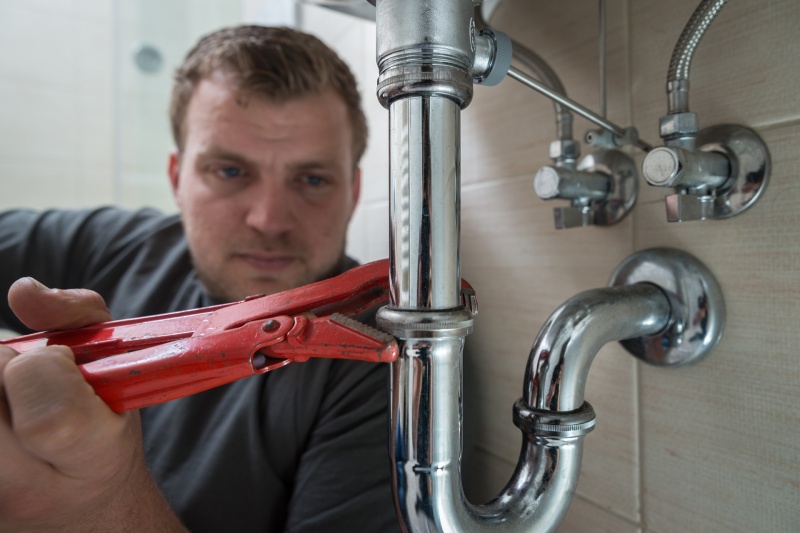Addressing drain clogs is often seen as a minor inconvenience regarding home maintenance. However, overlooking or neglecting drain clogs can lead to a cascade of problems that can significantly affect your home’s safety, comfort, and structural integrity. Let’s jump into what else can happen if you don’t handle drain clogs immediately and why seeking drain cleaning in Marietta can prevent future headaches.
Pest Problems
One of the most concerning consequences of drain clogs is the potential for pest infestations. Blocked drains create stagnant water environments, which attract pests such as cockroaches, flies, and drain flies.
These pests pose health risks and contribute to an unsanitary living environment. Pest activity is generally not self-alleviating, so it’s important to address issues early otherwise, they will only continue to grow.
As a rule of thumb, increased pest activity around plumbing indicates that you may have a drain clog on your hands.
Water Damage
Drain clogs can lead to water backup and overflow, causing water damage to your home’s interior. Overflowing sinks, showers, or toilets can seep water into walls, floors, and ceilings, leading to stains, rotting, and structural damage over time.
Occasionally, some drain clogs may be more subtle, causing water damage over prolonged periods without notice.
Mold Growth
Stagnant water from drain clogs creates a favorable environment for mold and mildew growth. Mold thrives in damp, dark areas and can quickly spread throughout your home, posing health hazards and requiring costly remediation.
Much like pest activity, once mold growth begins, it rarely stops spreading on its own. Mold can grow from almost anywhere, posing a real threat to your home’s integrity and family’s health.
Structural Problems
Persistent drain clogs can also contribute to structural problems within your home. Water seepage from clogged drains can weaken foundations, cause wood rot, and damage walls and ceilings. Over time, these issues can compromise the structural integrity of your home, leading to costly repairs and renovations.
How Drain Clogs Occur
Drain clogs can occur due to various factors, including:
- Accumulation of hair, soap scum, and debris in bathroom drains.
- A buildup of grease, food particles, and oils in kitchen drains.
- Foreign objects flushed down toilets, such as wipes, paper towels, and sanitary products.
- Tree roots infiltrate sewer lines and cause blockages.
- Aging pipes or improper installation leads to pipe corrosion and narrowing.
Prevention and Maintenance Tips
To prevent drain clogs and the associated issues, consider the following tips:
- A professional plumber should regularly clean the pipes to remove buildup. They may use hydro jetting, which sends high water to clear and keep the pipes clean. The plumber performing the service can also inspect pipes for general health.
- Install drain guards or strainers to catch hair, food particles, and debris before they enter drains.
- Avoid flushing non-biodegradable items down toilets and dispose of grease and oils properly.
- Consider upgrading to modern plumbing fixtures and pipes to minimize clog risks.
Drain clogs may seem like minor nuisances, but their impact on your home can be significant and costly. From pest infestations and water damage to mold growth and structural problems, the consequences of neglecting drain clogs can be far-reaching. The best way to avoid drain clogs is through regular drain cleaning by a professional plumbing service.
Contact HM Plumbing today to discuss drain cleaning in Marietta, GA. Serving with Integrity.

